Howdy! Let's talk about accessibility!
Accessibility in games is close to our hearts at myTrueSound. It has always been a part of our studio’s values ever since its start a few years ago when we started doing audiogames. Why is it then that Kilta, our next game, isn’t launching into early access with any accessibility features? Let’s go over some accessibility-related topics and the reasoning behind our decision to implement it later.
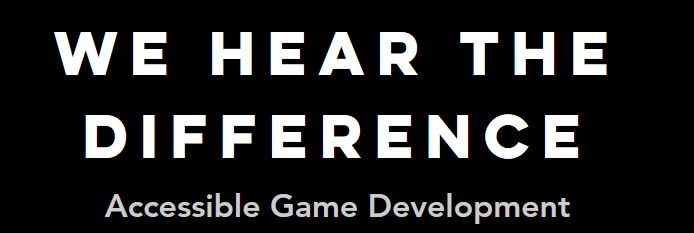
Age-Old Slogan of myTrueSound - We Hear The Difference (might be a time to change that...)
Many people coming from the blind and visually impaired community might be familiar with AudioWizards. AudioWizards is an audiogame developed by myTrueSound, which initially was launched on mobile platforms and later got ported to PC. In AudioWizards, the audio game experience was the main development focus: fun to play and fully accessible audiogame. Now, I'm using AudioWizards as an example because it's important to differentiate between arcade style mobile game and fully-fledged strategic RPG game aimed to PC platform. The scope of the game correlates with how challenging it is to implement accessible functions. And Kilta is way bigger game than AudioWizards.

AudioWizards Gameplay. It might not seem exciting, but tune in the game with some headphones, and it's a whole different story!
In AudioWizards the accessibility could be divided into two parts: the menu navigation and the gameplay interactions. The menu navigation was quite straightforward, as most of the menus were handled with buttons and maybe some sliders here and there. The gameplay interactions were also relatively easy to implement, as you only needed to give players the information about the selected spell, the number of lives left, and the super spell timer.
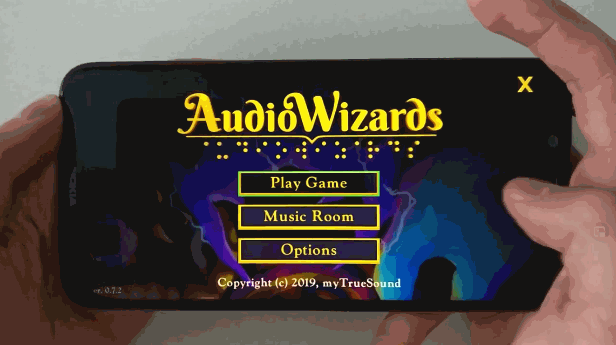
Menu Navigation in AudioWizards. With the accessibility features on, you move from an element to element by using swipes left and right.
By contrast, in Kilta the accessibility is divided into three parts, each of them being multiple times harder to tackle than anything found in AudioWizards. The three parts would be menu navigation, guild management, and battle mode.
To start off with the menu navigation-related challenges, the biggest issue is just the sheer amount of user interface dedicated to the navigating around the game. There are progress screens, new game screens, dialogue scenes, recruitment overlays, help pop-ups, many different types of tooltips, and a multitude of custom graphical elements to display varying amount of relevant information to the player. Actually, in Kilta there is more source code for the user interface alone than all the source code in AudioWizards! And each time some menu element is changed, moved or altered in some way, the accessibility of the said element needs to be tested and, in most cases, re-implemented. Even though Kilta is utilizing this ready-made plugin called UAP ("Unity Accessibility Plugin"), most of its features are designed for the mobile market first. Adding accessibility to the more dynamic menu elements found in Kilta is going to be a very time-consuming process.
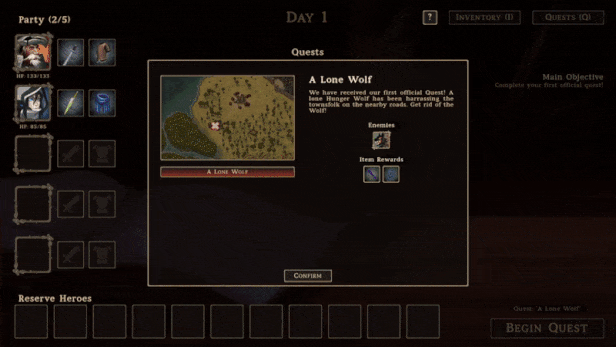
Kilta has a whole lot more menus in there than AudioWizard. Quite a challenge to tackle accessibility-wise.
The second set of challenges comes from the guild management. The main design principle for the guild management was to make it as easy to use for the sighted audience as possible. The way you manage your heroes and items is handled via mouse drag & drop. The player can see also all the details of an item or hero when you hover the mouse over the draggable graphic. This system was completely custom built and since it doesn't utilize any of the Unity's default UI navigation components, I had to custom made all the accessible navigation of those components. During the early development time, we considered a second option of making a completely different user interface for the guild management that would be utilized only when the accessibility mode of the game was enabled. But the downside of that option (and why we didn't choose it) was that it would essentially double the work required when any new guild management related feature was implemented. I like my code to be efficient, and programming two times the same thing was horrifying. Definitely, the guild-management-related accessibility is one of the main contributors to the fact that the early access launches without the accessibility features. Some of the new gameplay mechanics that we implemented during the last weeks were additions to the guild management system.
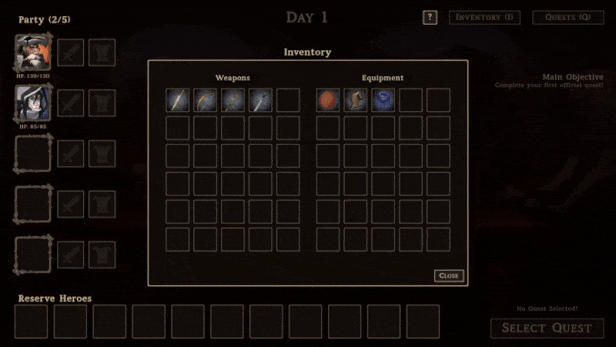
Drag and Drop. The bane of accessibility.
The last part of the accessibility-related challenges are found in the battle mode. Some of the remaining accessibility roadblocks present in the current state of the game are located there. First off, there is a completely custom-built system where you position the heroes inside a 3x3 grid at the beginning of each battle. The gameplay during the battle mode takes place in this environment and uses pixel art hero and enemy sprites. The accessibility had to once again be tied to this select and deselect system implemented for the sighted audience, which ended up taking quite a much development time to get just right. Once the battle starts, it's not yet fully clear how much we want the text-to-speech to deliver information about ability usages, hero or enemy incapacitation, status effect timers, and all that is going on on the screen. For sure we want to share with you all what is going on during the battle, but there is so much going on simultaneously, that we need to do that efficiently, and not only using text-to-speech tools. Overall, most of the information during the battles will be decipherable from the sound design, as there are different sound effects for different damage amounts and damage types for example. However, there are still multiple events taking place during the battles that will need some sort of text-to-speech solution.
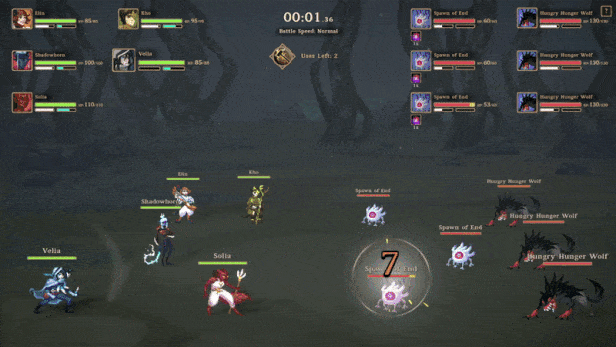
Imagine that every time there pops a number in the battle, a robotic voice would say it out loud. Yep, maybe not ideal.
All in all, I hope the above text gives some insight on the decision to not launch the early access without accessibility features enabled. There is still a certain amount of work left to do for our compromise to make Kilta fully accessible to all audiences. I hope you understand now a bit better and also support us considering the size of our company and our resources, why the main development focus has been to get out as a stable version of the game as possible.
Nevertheless, I’m sure you will have the chance to play this game sooner or later. I promise to bring you further updates on the status of the accessibility after the early access launch.
Written by Joonas Muukkonen, the Lead Programmer at myTrueSound




